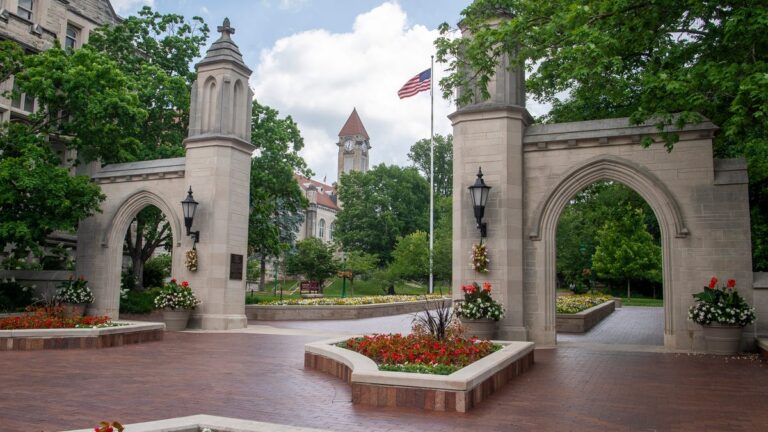IU Bloomington expressive activity policy updated
Indiana University has amended its expressive activity policy, allowing certain activities between 11 p.m. and 6 a.m.
- A judge dismissed a lawsuit challenging Indiana’s “intellectual diversity” law, citing lack of evidence of the fear behind its chilling effect on free speech.
- The ACLU of Indiana, representing four professors, argued the law infringes on academic freedom, but the judge ruled the case premature.
- The law requires universities to consider faculty members’ embrace of “intellectual diversity” and expression of political views during tenure evaluations.
A legal challenge to Indiana’s law mandating “intellectual diversity” in college classrooms has been dismissed after a judge ruled the fear behind the law’s subsequent chilling effect on free expression was unproven.
In his July 23 order, Judge Richard L. Young wrote that the legal complaint was premature. The case also lacks standing, he said, because universities have not taken or threatened enforcement actions against faculty members.
“The court finds Plaintiffs have adequately shown they have an actual fear of enforcement that has chilled their protected speech,” wrote Young, who was appointed by President Bill Clinton. “The issue is whether that fear is well-founded.”
Last September, the American Civil Liberties Union of Indiana filed a lawsuit on behalf of four Hoosier professors who claim the state law infringes on academic freedom and their First and Fourteenth Amendment rights.
In a statement to IndyStar, ACLU of Indiana spokesperson Laura Forbes said the organization is disappointed in the decision and is considering its options.
When Senate Bill 202 progressed through the Indiana Statehouse in 2024, professors decried the legislation, claiming the bill would stifle academic freedom and damage higher education outcomes, recruitment and prowess.
Academic freedom is defined as the ability for an institution’s faculty and staff members to build curriculum, research and pursue knowledge without interference from government officials and administrators, according to several First Amendment organizations. Several U.S. Supreme Court cases have labeled academic freedom as protected under the First Amendment.
SB 202 requires the state’s public universities, when evaluating a faculty member’s tenure, to consider whether they have embraced free expression and “intellectual diversity” in the classroom and if they have expressed political views unrelated to their discipline while teaching.
It also directed universities to stand up a process for students to report professors on those grounds. If a university finds that a professor is teaching contrary to the law, the professor may not be granted tenure or be denied a promotion.
The bill, introduced by Sen. Spencer Deery, R-Lafayette, was enacted in July 2024. A year in, a total of 14 complaints have been filed at Indiana University, Ball State University, Indiana State University and Ivy Tech University. It’s unclear whether any disciplinary action has been taken on them yet.
The ACLU’s complaint argues that the law was not adequately defined, and the professors have changed the content and pedagogy of their courses in fear of disciplinary action. An ACLU news release said the law could chill course debate over concerns that unfounded theories must be given the same credence as “rigorously studied academic analysis.”
The lawsuit was the ACLU’s second attempt to challenge the law. It first challenged SB 202 in May 2024, but that effort was dismissed after the judge said the plaintiffs lacked jurisdiction to sue.
The USA TODAY Network – Indiana’s coverage of First Amendment issues is funded through a collaboration between the Freedom Forum and Journalism Funding Partners.
Have a story to tell? Reach Cate Charron by email at ccharron@indystar.com, on X at @CateCharron or Signal at @cate.charron.28.

